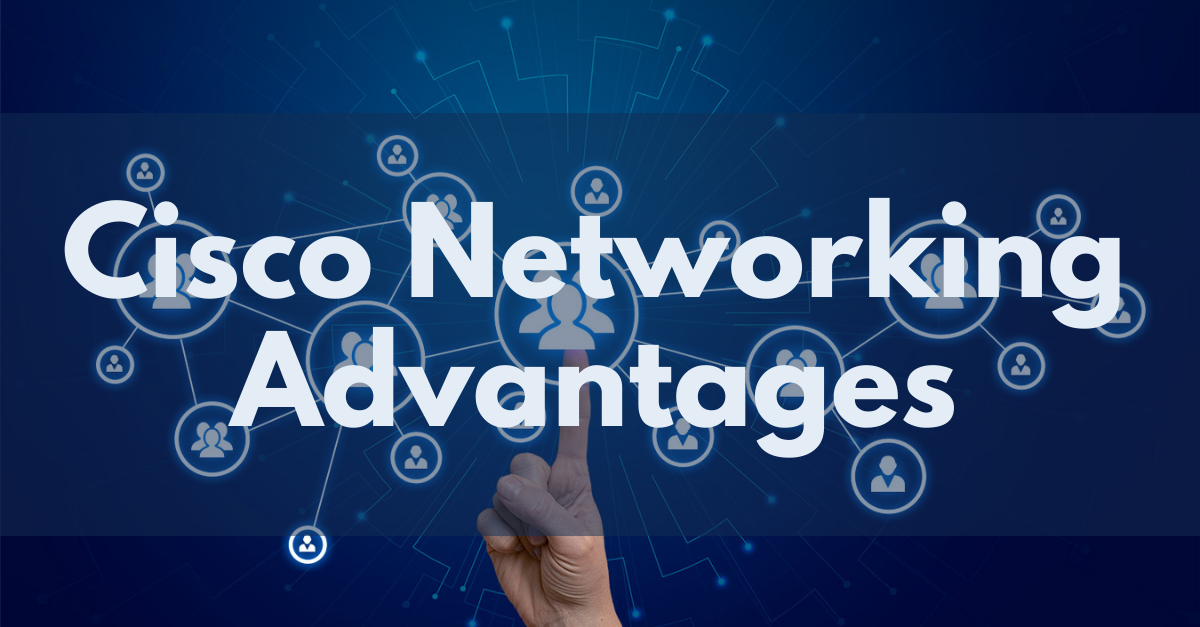A dependable and effective network is the foundation of any successful business in the linked world of today, where information flow is necessary. One of the major companies in the networking space, Cisco, offers efficient network solutions that are essential to businesses all over the world, which is why Technium uses Cisco when designing, managing, and maintaining secure networks.
Keep reading to learn more about Cisco networking solutions and how they’re reshaping business connectivity.
Overview of Cisco Systems
Cisco Systems, often just called Cisco, is an American multinational technology giant renowned for its networking hardware, software, and telecommunications equipment. Cisco has played a significant role in shaping how we connect and communicate in the digital era. Their commitment to innovation and excellence has fostered trust among businesses of all sizes.
What’s So Great about Cisco Networking?
Businesses rely on networks to connect their employees, clients, and partners. The performance, security, and reliability of these networks profoundly impact a company's success. Cisco's networking solutions are tailored to meet these critical needs, establishing themselves as the bedrock for numerous global organizations.
Advantages of Cisco Networking
Cisco's networking solutions offer a multitude of benefits that drive business success. In this section, we'll look into these advantages, highlighting how Cisco's innovations ensure reliability, security, and scalability for your network:
- Reliability: Cisco networking solutions, known for their dependability, reduce costly downtime by ensuring the smooth operation of your network.
- Security: Cisco leads the way in network security, continuously countering evolving cyber threats with advanced features that ensure the protection of your network and data.
- Scalability: Adaptable to your business growth, Cisco's solutions ensure your network can flexibly meet new challenges and opportunities.
- Innovation: Committed to research and development, Cisco consistently offers the latest networking technologies and features.
Cisco's Networking Principles
Cisco's networking success is built on a set of fundamental principles that shape the network infrastructure's efficiency, reliability, and security. Let’s look into the core principles that underpin Cisco's solutions, providing a deeper understanding of the foundation upon which their innovative networking technologies are built:
- Interoperability: Cisco systems seamlessly integrate with various devices and applications, catering to diverse network needs.
- Resilience: The ability to endure and recover from network disruptions is a fundamental aspect of Cisco's networking philosophy, incorporating redundancy and failover mechanisms.
- Security: Paramount in the digital age, Cisco's networking solutions are fortified with advanced security features to mitigate threats and vulnerabilities.
- Scalability: Catering to businesses of all sizes, Cisco networking solutions are designed to grow and adapt to evolving needs.
Role of Protocols
Protocols are the unsung heroes of the networking world, governing the seamless flow of data across digital landscapes. When it comes to the vital role that protocols play in Cisco networking, from the essential TCP/IP to the intricate BGP and OSPF, let’s look a little more closely at each and what they do:
- TCP/IP: The Transmission Control Protocol (TCP) and the Internet Protocol (IP) collectively form TCP/IP. These protocols are the fundamental building blocks of the Internet. TCP ensures that data is reliably transmitted across networks by breaking it into packets and reassembling them at the destination. IP governs the addressing and routing of these packets to ensure they reach the correct destination.
- BGP: Border Gateway Protocol is crucial for the smooth operation of the Internet as it manages the routing of data between different autonomous systems (AS) or networks. It helps determine the most efficient paths for data to travel between various networks, thereby ensuring efficient and reliable data transmission.
- OSPF: Open Shortest Path First is a dynamic routing protocol used within autonomous systems. It determines the most efficient path for data to travel within a single network. It's mainly known for its swiftness in recalculating routes when network changes occur, ensuring optimal data routing within an autonomous system.
Cisco Networking Components
Components can be broken down into hardware and software; let’s look at both a little more closely:
Hardware Components
Cisco provides an extensive range of networking hardware catering to diverse business needs, serving as the building blocks of a Cisco-powered network:
- Routers: Direct data traffic between different networks efficiently, known for their speed, reliability, and security features.
- Switches: Essential for creating local networks (LANs) and managing their traffic, offering advanced features like VLAN support and Quality of Service (QoS)
- Firewalls: Prioritizing security, Cisco's line of firewalls provides comprehensive protection against cyber threats and unauthorized access.
- Access Points: For wireless networking, Cisco offers a variety of access points, ensuring fast and reliable Wi-Fi connections.
Software Components
Designed to complement and enhance hardware, Cisco's software components streamline network management and bolster security:
- IOS (Internetwork Operating System): Cisco's proprietary operating system offers a standard interface for configuring and managing its hardware.
- SDN (Software-Defined Networking): By embracing the SDN approach, Cisco allows centralized network management and dynamic configuration.
- Cisco Security Solutions: Offering a suite including firewalls, intrusion prevention systems, and secure access solutions.
- Cisco Network Management Software: Provides comprehensive tools for monitoring, configuring, and troubleshooting your network.
.jpg?width=5184&height=3456&name=November%20Blog%20(2).jpg)
Implementing Cisco Networking
From network design and planning to installation and ongoing management, we'll walk you through the steps to harness the full potential of Cisco's robust network infrastructure:
- Network Design and Planning: Designing a network involves considering organizational goals, user count, and data type. Cisco provides resources and tools to aid network design, aligning it with business objectives.
- Installation and Configuration: Upon finalizing the network design, it's time for implementation. Cisco's user-friendly hardware and software simplify the installation process. However, it's advisable to engage a qualified Cisco professional for a seamless setup.
- Network Management and Maintenance: Sustained management and maintenance are vital for a smoothly running network. Cisco's network management software streamlines this with real-time monitoring, automated alerts, and diagnostic tools. Regular updates and patches also ensure network security and relevance.
The Future of Cisco Networking
Cisco's commitment to innovation means the future of networking is always in development. As technology evolves, so do Cisco's solutions. Emerging trends and technologies are shaping the future of CISCO networking and include the following:
- 5G Integration: Cisco is at the forefront of integrating 5G technology into its solutions, enabling new business possibilities from IoT applications to enhanced mobile connectivity.
- Edge Computing: Supporting the paradigm shift toward edge computing, Cisco's networking solutions enable real-time data analysis and decision-making at the network edge by bringing processing closer to the data source.
- AI and Machine Learning: Integrating AI and ML into networking solutions, Cisco enhances network security, optimizes performance, and provides insights into network behavior.
A Good Fit for Any Size of Business
Whether you're a small business seeking a sturdy network foundation or a large enterprise searching for scalable and cutting-edge solutions, Cisco's networking offerings are designed to meet your needs. However, becoming proficient in Cisco networking demands a deep comprehension of its fundamental principles, components, and implementation strategies. By harnessing this knowledge and expertise, businesses can propel themselves toward success in the digital era through Cisco's robust networking solutions.
Utilize the strength of Cisco networking in collaboration with Technium's proficiency to advance your business. Contact us now to learn more.

.jpg?width=5184&height=3456&name=November%20Blog%20(2).jpg)


